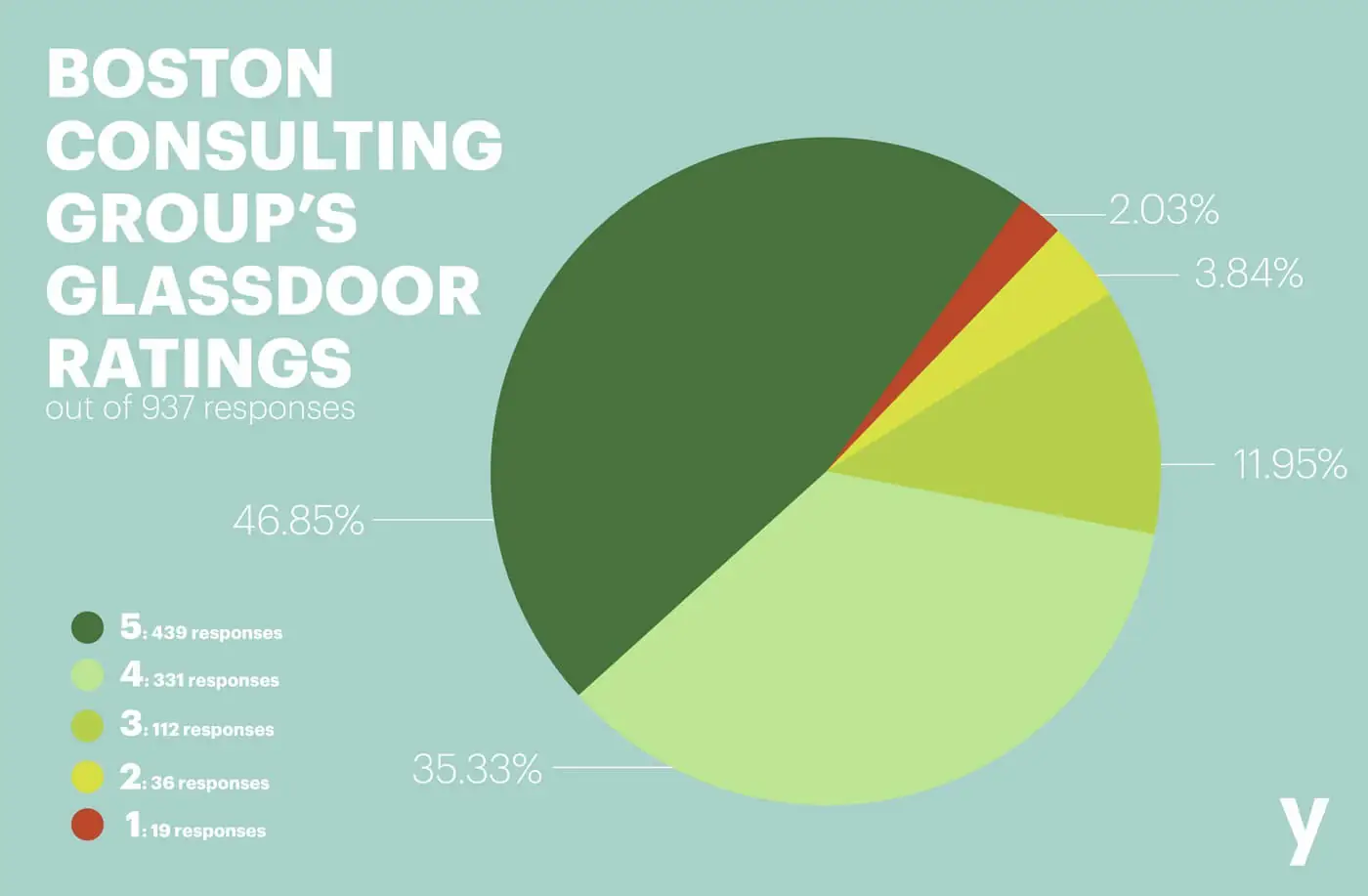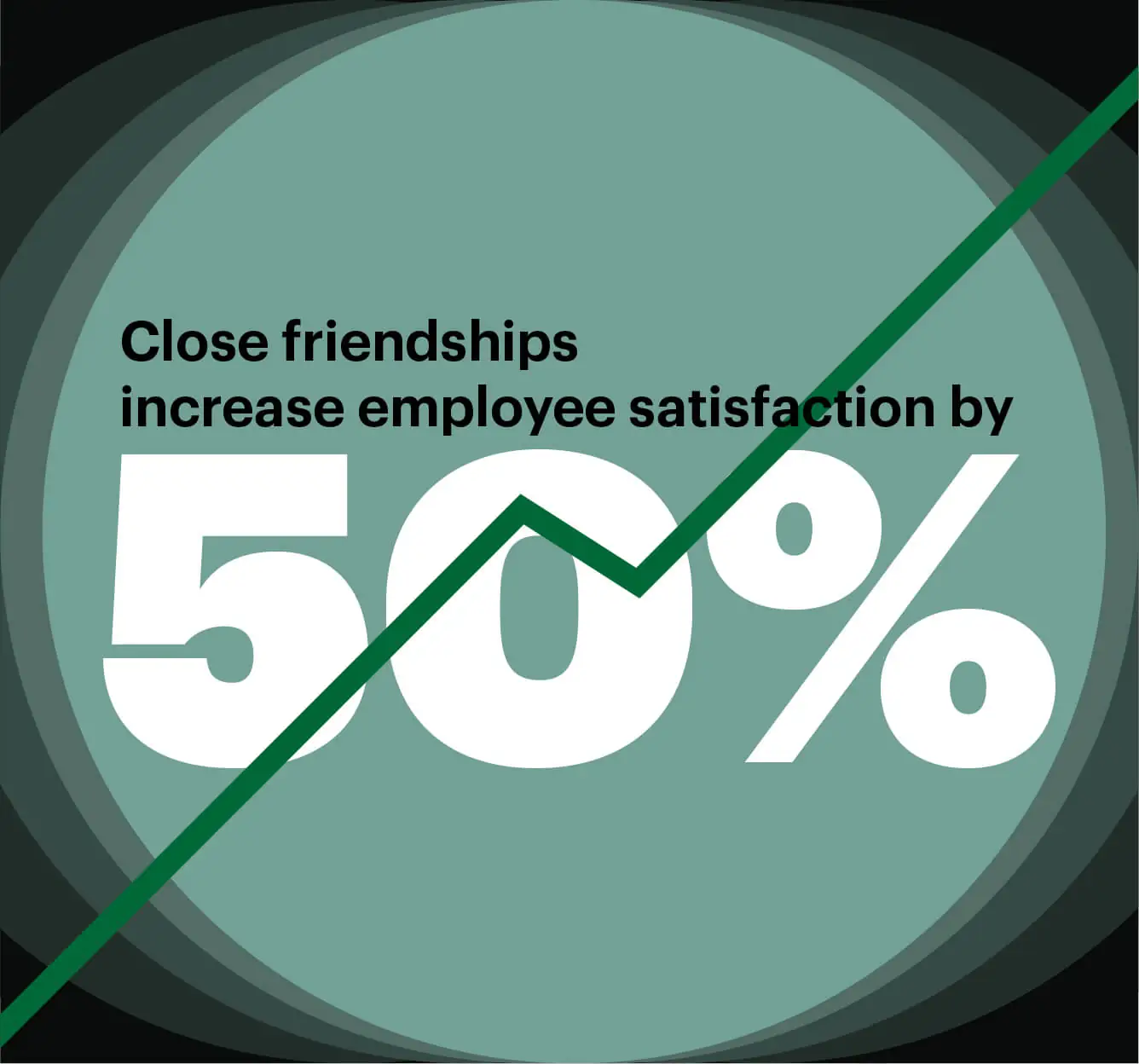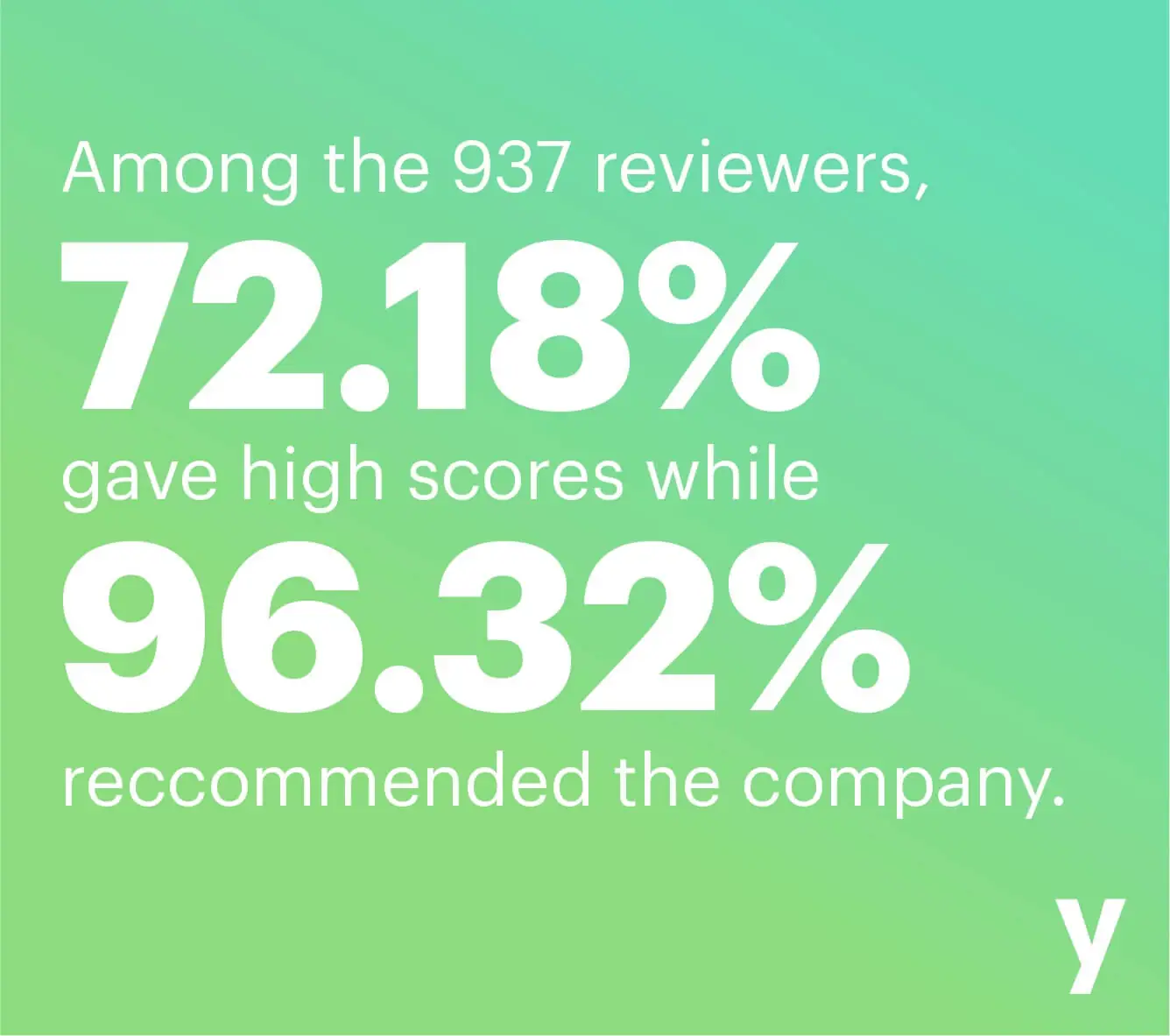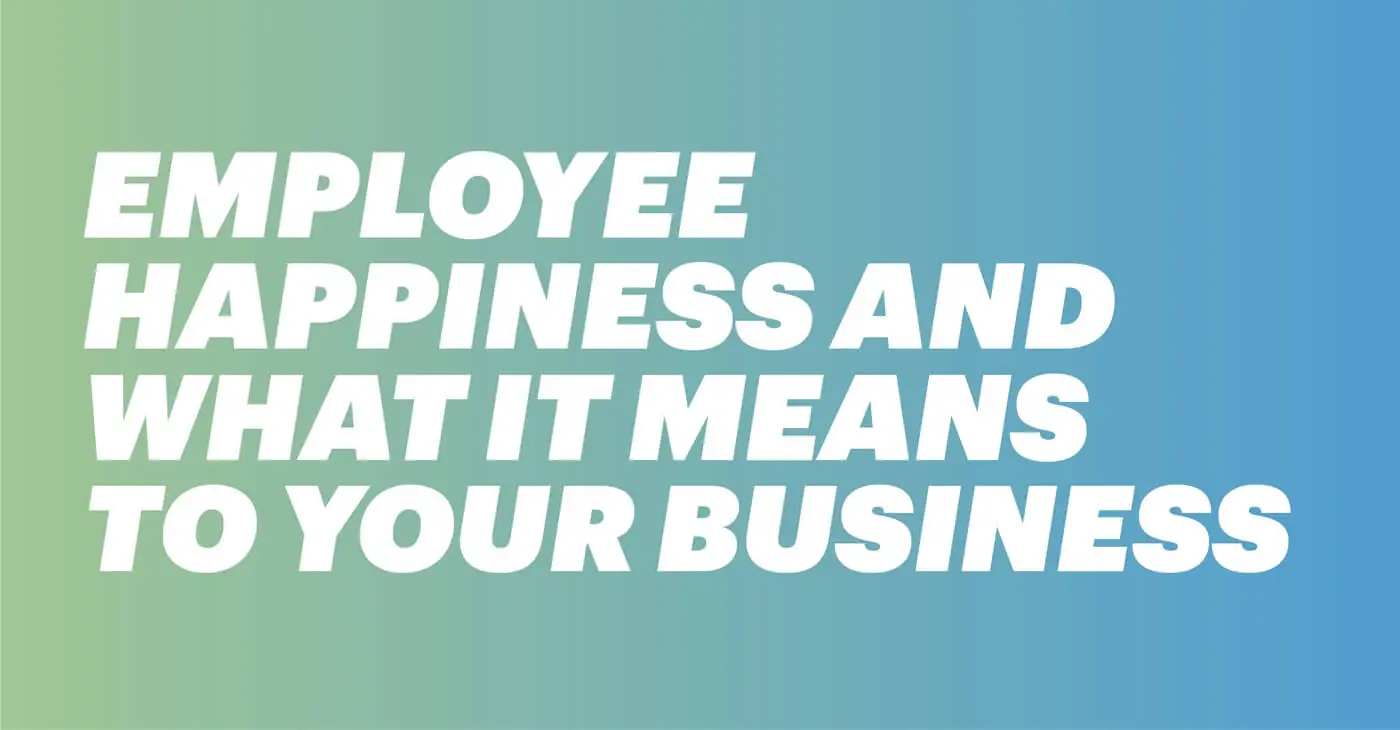Employee morale and company culture are key factors for productivity and autonomy in the workplace. For our research study, we analyzed data from Glassdoor.com on Boston Consulting Group (BCG), the #3 Best Place To Work with an overall score of 4.4 out of 5. The sample size includes 937 reviews, with varying levels of feedback and information sorted into separate cultural categories and demographic groups. Key takeaways provide insight into work/life balance, management quality, and workforce development trends that affect employee emotional engagement and morale.

Employee Development and Care
Employee Development and Care includes reviews that mentioned benefits, compensation, opportunities for advancement and education, time away from loved ones, unhappiness, resources, care for employees, long distance travel, unclear paths to promotion, discrimination, and work/life balance. The collection of categories for employee development and care is the broadest and also includes the characteristics that are mentioned most frequently.
Benefits, compensation, and learning were popular highlights of employee development and care, with training and open opportunities scoring high alongside the feeling of “being cared about/for.” Notably, opportunity, intensive learning, and training opportunities appear alongside “unclear promotion,” which can account for the inclusion of positive (4 or 5) and negative (1 or 2) reviews. Long travel and work/life balance received a number of negative comments, with work/life balance receiving the most comments of any category at 544.
Atmosphere and Environment
Atmosphere includes reviews that mention excellent people, senior accessibility, flexibility, partnership, respect and trust, humility, culture, collaborative support, and feedback mechanisms. Overall, this category was the most consistently positively reviewed section, with a record high of 387 people confirming the excellence of their coworkers. The positive social atmosphere and culture contributed significantly to the emotional involvement of BCG employees and played a key role in their third place ranking for Best Place to Work. Notably, a large number of respondents mentioned a “great office” environment.
Work Sector
 The work sector featured a mixed reaction for comments regarding brand quality, meaningful and interesting work, growth, and feeling valued. Also mentioned were comments about unreasonable clients, tedious work, high pressure, disqualified work, and lack of knowledge in seniority. Interesting, meaningful work that encourages growth and makes the employee feel valued in a professional environment was a key factor in positivity for reviews. The most frequent negative characteristic in the work sector was high pressure, with 93 responses recorded. In addition, general workplace trends show that close friendships increase overall employee satisfaction by 50%. This is something Boston Consulting Group could see an increase in for this sector.
The work sector featured a mixed reaction for comments regarding brand quality, meaningful and interesting work, growth, and feeling valued. Also mentioned were comments about unreasonable clients, tedious work, high pressure, disqualified work, and lack of knowledge in seniority. Interesting, meaningful work that encourages growth and makes the employee feel valued in a professional environment was a key factor in positivity for reviews. The most frequent negative characteristic in the work sector was high pressure, with 93 responses recorded. In addition, general workplace trends show that close friendships increase overall employee satisfaction by 50%. This is something Boston Consulting Group could see an increase in for this sector.
Management Sector
The management sector attracted the highest percentage of negative reviews (in lesser volume and frequency). Management related comments include mentions of a lack of innovation and creativity, being understaffed, an up or out environment, managers with no tolerance, leadership, high turnover, inability to select and control projects, disproportionate work distribution, transparency, lack of hierarchical influence, a dysfunctional team or politics. The inability to control work, feelings of unfair distribution, and office politics had more than thirty mentions each, with politics being a common factor in negative reviews (69).
Sentiment and Macro Analysis
 Sentiment was measured with linguistic analysis, and the results show that positive reviewers were more likely to emphasize the strength of their feelings than negative reviewers. Among the 937 reviewers, 72.18% gave high scores and had a high (96.32%) recommendation rate. They also responded with above average likelihood of a positive outlook and CEO approval. The individuals that left a high rating mentioned the excellent people, interesting and meaningful work, open opportunities, benefits, and compensation in their written feedback.
Sentiment was measured with linguistic analysis, and the results show that positive reviewers were more likely to emphasize the strength of their feelings than negative reviewers. Among the 937 reviewers, 72.18% gave high scores and had a high (96.32%) recommendation rate. They also responded with above average likelihood of a positive outlook and CEO approval. The individuals that left a high rating mentioned the excellent people, interesting and meaningful work, open opportunities, benefits, and compensation in their written feedback.
Only 55 (5.87%) of respondents left a review of 1 or 2 stars, with 80% of them not endorsing BCG for employment and only 22.22% of them expecting a positive outlook for the company. Still, nearly 1 out of 5 mentioned benefits, compensation, meaningful and interesting work, open opportunities, and excellent people as positive experiences during employment. Individuals who left a low score for BCG most frequently commented on politics, dysfunction, and the work distribution as being factors for unhappiness.
Conclusion
A wide variety of factors account for employee engagement and happiness in the workplace, and the most thematic comments focus on personnel, leadership, and value driven company culture. The traits and characteristics opposite were most commonly associated with negative reviews, while cooperative and encouraging traits were strongly correlated with positive feedback. Overall, the data suggests that a strong focus on positive company culture and cooperative spirit seem to be the significant factors in encouraging behavior that bolsters employee morale and makes BCG one of the best places to work in the United States.




